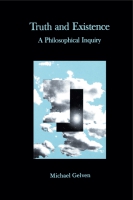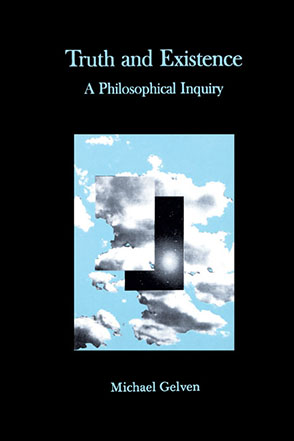Truth and Existence
A Philosophical Inquiry
Michael Gelven
“Gelven's work is an extremely valuable contribution to existential thought, unlike any other book I've encountered, unusually well written and readable. It provides provocative, and often stunning, new interpretations of topics familiar to artists and writers, as well as philosophers. The book will likely appeal to a general audience.”
- Description
- Reviews
- Bio
- Subjects
Pursuing philosophical inquiry as a voyage of discovery, the book begins with ordinary questions about the worth and meaning of truth. A fundamental distinction is drawn between the "true" (as in a true proposition) and "truth" as essence, that which we confront as the ultimate terminus of our questioning—for example, between the true definition of mother as a female parent and truth as what we understand being a mother to mean, as one who sacrifices her own interests and safety for her child. The analysis then proceeds to examine the four ways in which we confront truth—through affirmation, acceptance, acknowledgment, and submission—and the existential modes of experience in which these confrontations are embodied: pleasure, fate, guilt, and beauty. Each of these four confrontations has consequences for how we understand the world in which we dwell. Thus the book concludes with interpretation of the world as our home, our history, our tribunal, and ultimately that which lures or beckons us to confront ourselves.
Plato, Kant, and Heidegger are the primary sources of philosophical inspiration for Gelven, but he eschews textual exegesis and academic debate in favor of engaging the reader as co-explorer in the discovery of what it means for each of us to be in truth.
“Gelven's work is an extremely valuable contribution to existential thought, unlike any other book I've encountered, unusually well written and readable. It provides provocative, and often stunning, new interpretations of topics familiar to artists and writers, as well as philosophers. The book will likely appeal to a general audience.”
Michael Gelven is Professor of Philosophy at Northern Illinois University. He has published A Commentary on Heidegger's Being and Time (1970; rev. ed., 989), Winter, Friendship, and Guilt (1973), and Spirit and Existence (1990).
Mailing List
Subscribe to our mailing list and be notified about new titles, journals and catalogs.




